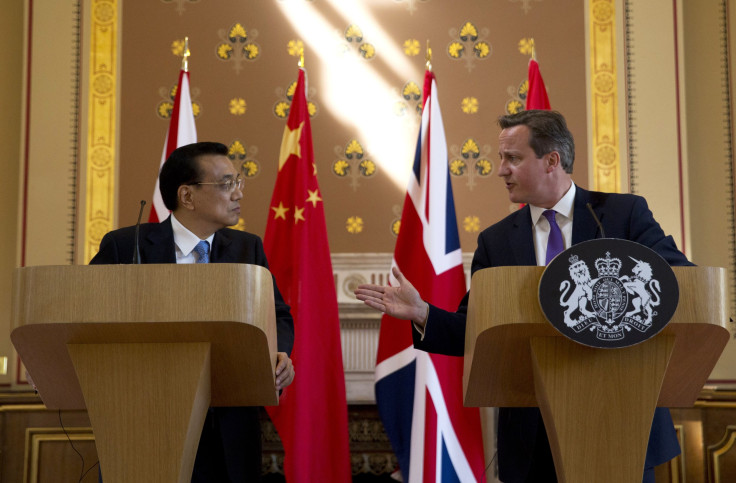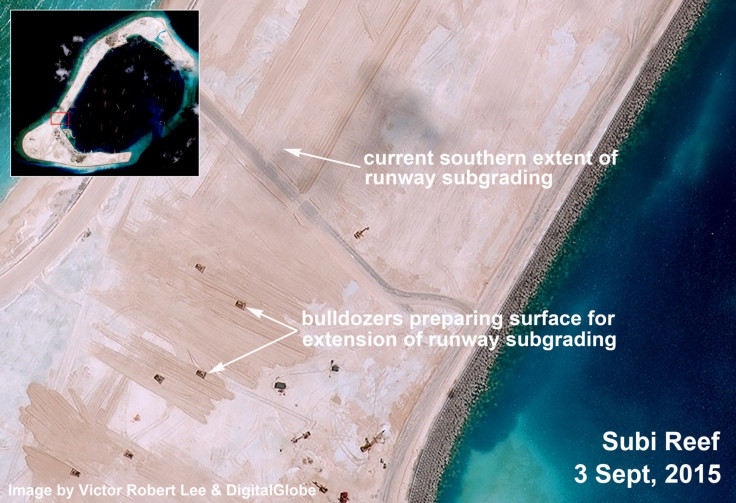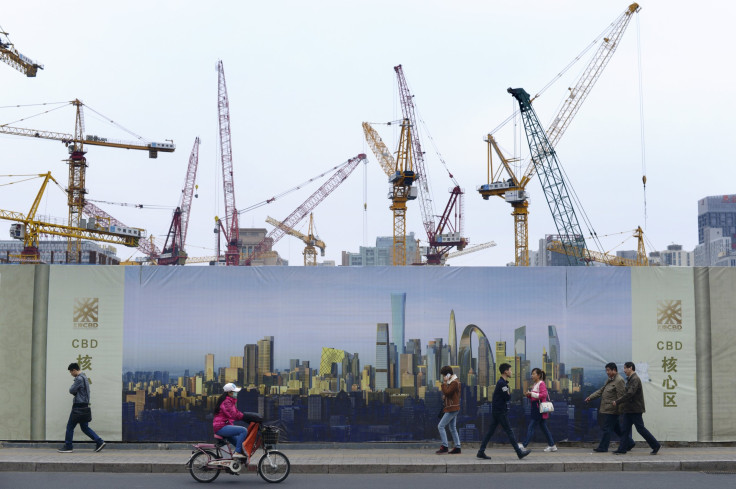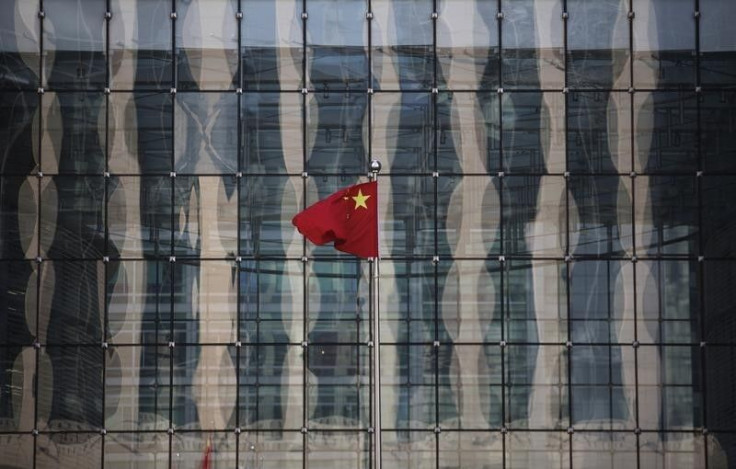Britain's Red Carpet Welcome For Chinese President Highlights Divisions Between UK And US Over China Policy

SHANGHAI -- Chinese President Xi Jinping will receive a warm welcome on this week's state visit to the U.K., with the British government saying it wants to be China’s “best partner” in the West. Concrete proof of a fast-improving relationship is expected to come with deals that may bring Chinese involvement to the construction of a British nuclear power station and a planned high-speed rail link.
Prime Minister David Cameron has hailed a “golden era” in relations between the two countries. Three weeks ago, on a state visit to China, British Chancellor George Osborne declared he wants China to become Britain’s second-biggest trade partner within a decade.
But his government’s unambiguous tilt toward China is dividing opinion in the U.K. – and could lead to tensions between London and Washington. The Chinese president received a high-level welcome in Washington last month, but ties with the Obama administration remain cool, with tensions high over alleged Chinese cyberespionage, and China's reclamation of land in disputed waters in the South China Sea.

And human rights activists in the U.K. have accused the country's Conservative leadership of being so “desperate for Chinese cash” that they are “prepared to abandon principle and endanger Britain’s national security” by downplaying human rights and giving “control of key infrastructure” to companies linked to a one-party Communist state. As President Xi and his wife, Peng Liyuan, ride to lunch at Buckingham Palace in a horse-drawn carriage on Tuesday, human rights groups will stage a protest in a nearby park at what they say is a worsening crackdown on civil society in China. Heir to the throne Prince Charles, meanwhile, is reported to be avoiding an official banquet for Xi due to his opposition to China’s policies in Tibet -- though he will greet the Chinese leader on Tuesday and will also hold a separate meeting with him.
There’s no question Xi is receiving the warmest of official welcomes, however. He will address the U.K. parliament, speak at a state banquet and at another dinner in the City of London financial district, and travel with David Cameron and George Osborne to Manchester, where he will visit research institutions and Manchester City soccer club – Xi, a committed soccer fan, has announced a massive plan to help China qualify for and one day stage the soccer World Cup Finals, a topic he discussed with Britain’s Prince William in Beijing in March. Meanwhile the government is reported to have arranged a private meeting between Xi and the new leader of the opposition Labour Party, veteran socialist Jeremy Corbyn – in order to avoid the embarrassment of Corbyn criticizing China’s human rights record at the state banquet.
Xi, in an interview with Reuters this week, praised Britain’s “visionary and strategic choice” to prioritize trade and investment over issues such as Tibet and human rights, which have been thorns in the relationship in the past. Indeed, the visit marks the culmination of painstaking efforts to rebuild the relationship by the U.K. since 2012, when David Cameron enraged Beijing by meeting the exiled Tibetan spiritual leader the Dalai Lama, whom Beijing describes as a separatist “pustule.” For the next 18 months, China, in its own words, “gave London the cold shoulder”: Ministerial visits were cancelled, and (though Britain remains the largest European investor in China) investment and trade deals were conspicuously given to other EU countries such as France and Germany.
'Britain NEEDS us’ says China as Tories roll out red carpet for President to beg for cash http://t.co/VuGXLfo9zO pic.twitter.com/FnxGuvDsqH
— Daily Express (@Daily_Express) October 19, 2015Since then, the U.K. government has changed its stance: The leadership has reportedly pledged not to meet the Dalai Lama again, and has apparently made little reference to human rights on subsequent visits to China. Earlier this year, Britain broke ranks with the U.S. to become the first western country to join the China-initiated Asian Infrastructure Investment Bank, which Washington warned might not live up to international criteria for sustainability and environmental impact controls. Last month U.K. Chancellor George Osborne set the seal on the warming when he became the first high level western politician to visit China’s north-western region of Xinjiang, scene of a vicious conflict between Chinese security forces and Islamist separatists. Osborne is said to have avoided sensitive topics and focused on trying to attract investment from the region to the U.K.
Osborne also announced plans for London to become a center for trade in Chinese yuan-denominated debt, and proposed a direct trading link between the London stock exchange and its famously volatile Shanghai counterpart (which rose 150 percent in a year before plunging back some thirty percent since June).
China, which has been calling without much success for the U.S. to formalize what it calls a “new great power relationship” with Beijing, is delighted by this volte-face. The official Global Times newspaper said while, as “An old empire, the UK has declined [in power]", it had displayed “adept diplomatic skills” in recalibrating its relationship with China. It said that Britain's move suggested western countries were now “trying to redress their deep-rooted political prejudices” towards China. And it acknowledged that “China needs a Western country to set an example for a new China-west relationship.”

What this could mean in practice is more Chinese investment in Britain. Leading Chinese real estate companies, such as Dalian Wanda, have made significant investments in the UK, some of which are currently transforming the skyline of London. Some 150 deals ranging from health and aircraft manufacturing due to be signed during the visit, including a long-mooted deal in which a Chinese state-owned nuclear power station operator will invest and participate in the construction of a new nuclear plant at Hinkley Point, as part of a consortium with French nuclear giant EDF. Osborne is reported to be keen on the deal, despite what critics say is the influence this could give China over key UK infrastructure, and also concerns about safety standards: while China has never had a major nuclear accident, one of its own top nuclear scientists recently told the Guardian that China was not putting sufficient emphasis on safety at its nuclear plants.
From Beijing’s point of view, the U.K. provides a useful point of entry to the European Union, and a good shop window for its products and its construction capacity- which Beijing is eager to export amid a slowdown in its own construction sector. Chinese companies are expected to play a role in a new high speed rail link from London to Birmingham, for example.
The Financial Times newspaper said in an editorial that the U.K. government’s “uncritical charm offensive” toward China was a "gamble," since many concrete deals had yet to be finalized, and it acknowledged that this had opened a "chasm "between the U.K's "foreign policy imperatives" and those of the U.S. However it said that “the size of the potential commercial opportunity” meant the U.K. was right to roll out the red carpet for Xi Jinping.
#China's Xi Jinping warns Jeremy Corbyn he's not discussing #humanrights on #UK visit http://t.co/ETTbjWSgGb
— Jonathan Johns (@_jtj1333) October 19, 2015However, others say the U.K. has gone too far. Exiled London-based novelist Ma Jian, a long-time critic of the Chinese government, said the U.K. government was welcoming “Big Brother” with “open arms and shameless sycophancy.” Pointing out that Xi’s government has pledged to eradicate Western values, including democracy, from the country’s education system and Internet, he said the U.K. was handing a “huge propaganda coup” to a leader who “craves the approval of the Western democracies he derides.” He said the message the visit would send to China’s people was that "if the queen of the U.K., the oldest democracy in the world, lavishes your president with such respect and approbation, then what right have you to criticize him?
Human rights groups say President Xi has overseen China’s most aggressive crackdown on civil society since the Tiananmen crackdown of 1989. Civil rights activists, NGOs, lawyers, journalists and bloggers have been targeted – in the most recent case, an award-winning journalist who exposed an alleged case of murder was arrested this month on charges of leaking state secrets. And in a widely publicized speech published in China's media last week, President Xi called for a “Marxist view of art and culture,” and accused some contemporary artists of “subverting history” and creating “cultural garbage.”
And last week a planned public exhibition of a copy of the Magna Carta, the 13th century document seen as the foundation of Britain’s democracy, at a Beijing university, meanwhile, was suddenly moved to the British ambassador’s residence, where it was only visible for a few hours to people who made appointments in advance. The organizers did not give an explanation, but analysts said political sensitivities may have been to blame.
China’s ambassador to London Liu Xiaoming has also suggested Xi would feel “offended” if he were lectured on human rights during his visit, according to one report -- while Chinese media highlighted Liu's combative performance in an interview on the BBC’s "Newsnight" program last week.

However, despite these tensions, President Xi is seeking to send a more reassuring message to the U.K. on economic issues: he acknowledged to Reuters that China had “concerns” about its economy, which has slowed this year, and has been buffeted by stock market volatility. However he said China was addressing these issues – and he said Beijing would allow more foreign investment, something some foreign businesses have complained remains restricted to specific sectors of the economy.
A Chinese film made by a government-backed studio, meanwhile, highlighted China's role in creating jobs in Britain, through deals such as the takeover of the company that makes London Taxis by a Chinese firm -- though critics in the U.K., as in the U.S., have also warned that China has undermined other sectors of British industry by what they say are unfair subsidies.
Against this backdrop, Xi's visit is set to be a potentially challenging test of the "golden era" in China's relations with the West.
© Copyright IBTimes 2024. All rights reserved.






















